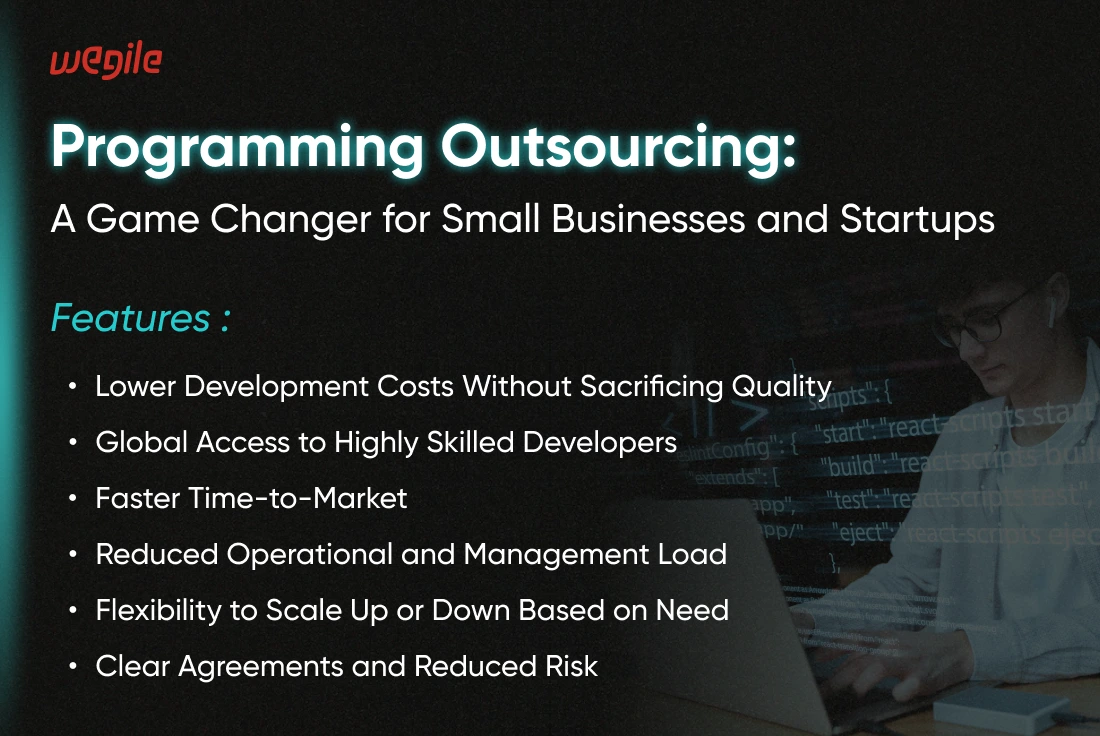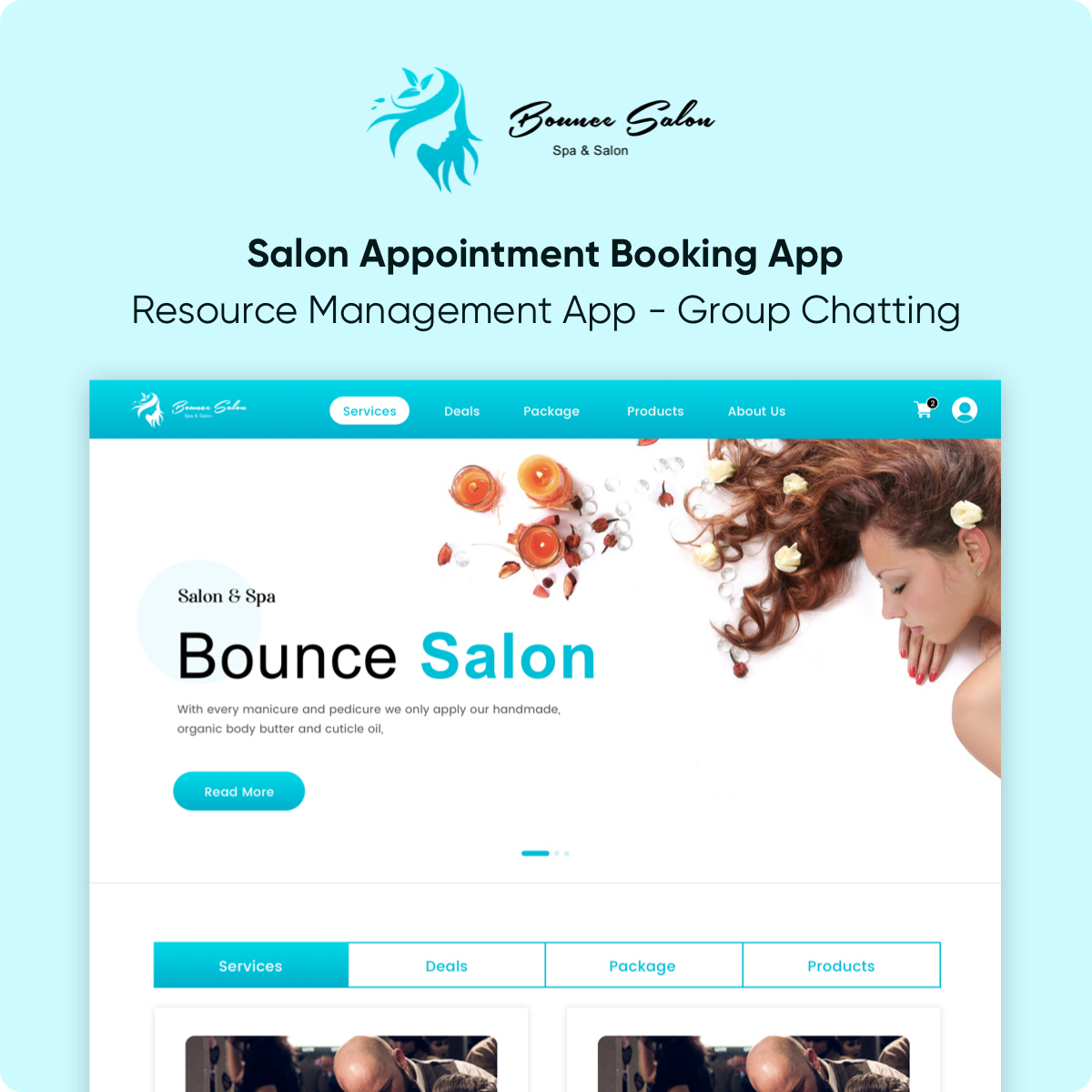Launching a tech product is all about speed and the proficiency to deliver without overstretching limited resources. Most small businesses and startups know the pressure of trying to build great software without burning through capital or delaying timelines.
That's why programmer outsourcing has become more than a cost-cutting trend. It's a strategic advantage that gives emerging businesses access to top-tier development talent without the risk and commitment of hiring full-time staff.
If your team is looking to scale an MVP or fix a growing backlog of product features, the decision to outsource programmers can create a serious edge. You’ll reduce overhead and free your core team to focus on strategy and customer acquisition.
Programmer outsourcing is the procedure of hiring external developers to deal with software development projects on a contract or freelance basis. These professionals are not part of your internal team. But, they work under your direction or through an agency to complete tasks or support long-term product development.
It’s a flexible way for companies to access technical expertise without hiring full-time staff or building in-house development departments. Thus, no matter if you choose to partner with a global firm or contract an individual developer, the goal remains the same: deliver great software while staying lean and focused.
You can outsource computer programming for nearly any task: front-end work, back-end systems, API integration, or mobile development. Businesses can also hire entire teams to manage full-stack development and product roadmaps.
Outsourcing does not mean handing over control. It means extending your capabilities by bringing in trusted experts who operate under your timelines and product goals.

The advantages of outsourcing computer programming are especially valuable for startups and smaller companies that need to stay agile. Right from reducing development costs to increasing delivery speed, outsourcing opens doors that would otherwise be out of reach for small teams with tight budgets.
Hiring a full-time developer comes with a substantial financial obligation. Beyond salary, there are expenses tied to training and recruiting. These costs can be unsustainable for startups or small teams. Programmer outsourcing supports you to work with skilled developers from around the world at competitive rates.
You can match talent to your exact needs and budget without compromising on quality. This frees up capital for marketing or other growth initiatives while still moving development forward.
When you outsource programmers, you are no longer restricted by geography. It brings you the power to work with top specialists regardless of location. For example, you might hire a mobile app developer in Eastern Europe or a machine learning expert in India.
This model is especially useful when your app needs a specific tech stack or specialized features. The best talent is not always local. Outsourcing allows you to tap into a global network of experienced developers and engineers.
Getting your product to market quickly can make or break a startup. The longer development takes, the more opportunities you miss. You can eliminate long hiring processes and onboarding delays by selecting programming outsourcing.
Outsourced developers are often ready to start immediately and already have experience building the type of application you need. It can enormously accelerate development cycles, therefore assisting you launch faster and stay ahead of the competition.
Managing a technical team comes with its own set of challenges. Performance reviews, team collaboration, project tracking, and task assignments all take time. When you outsource computer programming, most of these management tasks are handled by your outsourcing partner.
You receive regular updates and performance metrics without having to build internal HR or tech management systems. It allows your leadership team to concentrate on customer strategy or expanding partnerships instead of daily development issues.
Startup life is unpredictable, as business models evolve and timelines change frequently. Having the ability to adjust your team size without legal or financial complications is a massive advantage.
Outsourcing gives you the flexibility to onboard a team for a specific sprint, scale down when the workload is lighter, or bring in extra help during a launch. You can make staffing decisions based on your product roadmap, and not long-term headcount planning.
Outsourcing typically operates under defined scopes and payment structures. This level of clarity reduces risk and sets firm expectations from the start. Reputable outsourcing partners also provide documentation and agile workflows that align with your business goals.
Many small businesses benefit from this structure, especially when working on fixed budgets or hard launch dates. It brings transparency and a more predictable path to delivery.
You can outsource computer programming for nearly every type of software project. Right from idea to execution, outsourcing fits into each phase of digital product development.
Startups often need to build a minimum viable product (MVP) to test the market or pitch to investors. Instead of hiring a full in-house team, outsourcing allows you to develop a working prototype with fewer resources. You’ll get to launch and iterate faster, without sacrificing build quality or burning through funding.
Whether it’s a mobile app, web app, or a cross-platform tool, outsourcing development gives you access to entire teams who specialize in taking products from concept to launch. You can keep your internal resources focused on customer acquisition and business development while outsourcing handles the tech build.
If your app needs strong backend architecture, secure data storage, or third-party API integration, you can outsource programmers with the right experience. They bring knowledge of frameworks and security protocols that are essential to long-term success.
Once your product is live, you’ll need to iterate. New features, improvements, user feedback loops, all require development time. Outsourcing lets you bring in specialists on-demand without the delay of traditional hiring cycles.
Outsourced developers can clean up legacy code and fix bugs without disrupting your live product. This is especially helpful when your internal team is already overloaded or lacks specific expertise.
If you are considering programming outsourcing but are unsure how to begin, the following step-by-step framework will help you move from idea to execution with clarity. Many small businesses hesitate because they fear communication issues or misalignment. With the right structure, you can avoid common pitfalls and work effectively with outsourced developers.
Before you look for a partner or post a job, make sure you understand what needs to be built. Is this a short-term fix or a long-term engagement? Is your product still in ideation or are you building on top of an existing system?
Clarity in scope prevents miscommunication. Create a simple brief that outlines the objectives, tech requirements, target platforms, and timeline.
There are several ways to outsource computer programming, each with pros and cons:
Choose a model based on your budget and the nature of your product cycle.
If you are ready to outsource programmers, vet candidates carefully. Look for:
Set up initial interviews or discovery calls to evaluate fit beyond technical skills. Cultural alignment and transparency matter just as much.
Before committing to a long engagement, assign a small paid test project. It could be a feature build, a bug fix, or UI improvements.
A pilot helps both parties understand working styles, expectations, and collaboration dynamics. It also allows you to assess quality and delivery accuracy without high risk.
Once the project begins, invest in systems that keep everyone aligned. Use tools like:
Clear documentation and regular check-ins are key to keeping outsourced teams in sync with your business goals.
Structure your timeline with milestones tied to deliverables. Break the project into sprints or phases and review progress at each checkpoint.
Provide actionable feedback. Avoid vague comments like “This isn’t working” and focus on what needs to be improved or refined. Agile-friendly outsourcing partners will welcome this and adjust accordingly.
Before development begins, make sure all contracts cover intellectual property rights and code ownership. Use NDAs, service agreements, and access controls to protect your product.
Ensure that source code is always stored in your version control system and that documentation is updated regularly.
After the initial project wraps up, review the results. Did the developers deliver what you expected? Was communication smooth? Were bugs resolved quickly?
If yes, consider deepening the relationship. Many startups start with one developer and expand into a remote team once trust is established.
When deciding how to approach software development, small businesses and startups typically weigh two paths: hiring an in-house team or using programmer outsourcing. Each model has its pros and cons, but the differences are especially significant when you’re working with limited time and budget.
The table below compares the two approaches across key business factors, helping you determine which option aligns best with your goals.
| Category | In-House Development | Programmer Outsourcing |
|---|---|---|
| Cost | High ongoing salaries, benefits, and recruitment expenses | Lower hourly or project-based costs with no long-term contracts |
| Hiring Time | Several weeks to months | Often within days or a week |
| Access to Skills | Limited to local talent pool | Global access to specialized expertise |
| Scalability | Time-consuming and expensive | Easily scalable based on project needs |
| Management Overhead | Requires full-time oversight and HR involvement | Minimal overhead; often managed by the outsourcing partner |
| Time to Market | Slower due to team setup and onboarding | Faster execution and quicker delivery |
| Flexibility | Fixed resources, even if workload shifts | Teams can expand or contract based on demand |
| Risk Management | Full responsibility on internal management | Shared risk with defined scope and contractual terms |
Small businesses often struggle to balance product quality and cost. Hiring full-time developers is expensive and risky if priorities are still shifting. Programmer outsourcing solves that problem by offering skilled talent and cost-efficient delivery. It allows founders to focus on their business strategy while development continues in the background.
Whether you are building your first product or simply trying to move faster, outsourcing computer programming can be the difference between stalling and scaling. It gives you the space to focus on customers and market fit while experienced professionals handle the technical build.
That’s where Wegile becomes a valuable partner. Wegile stands out among providers offering Top IT Software Development and Consulting Services, helping businesses bring their digital vision to life with minimal risk and maximum efficiency. Our developer teams are tailored to your product needs and growth stage, making us a smart choice for startups and small companies ready to execute fast.


 Browse Our Services
Browse Our Services
